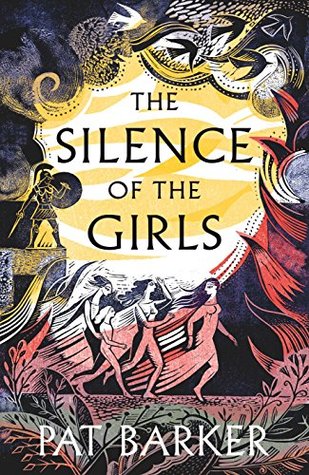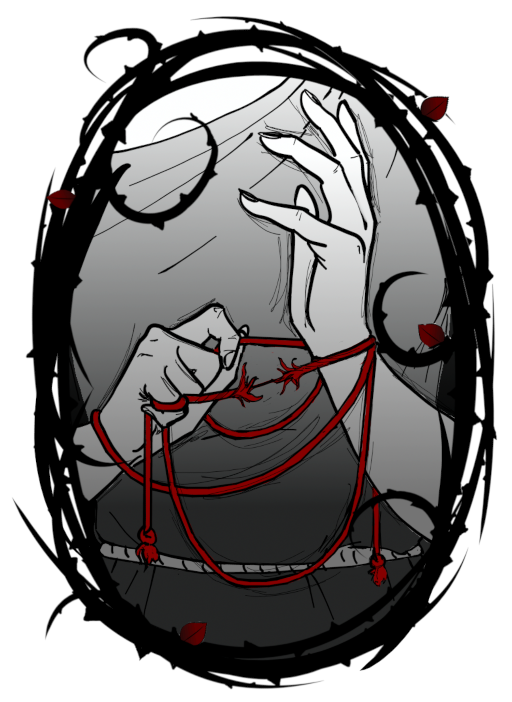At Sirens, attendees examine fantasy and other speculative literature through an intersectional feminist lens—and celebrate the remarkable work of women and nonbinary people in this space. And each year, Sirens attendees present dozens of hours of programming related to gender and fantasy literature. Those presenters include readers, authors, scholars, librarians, educators, and publishing professionals—and the range of perspectives they offer and topics they address are equally broad, from reader-driven literary analyses to academic research, classroom lesson plans to craft workshops.
Sirens also offers an online essay series to both showcase the brilliance of our community and give those considering attending a look at the sorts of topics, perspectives, and work that they are likely to encounter at Sirens. These essays may be adaptations from previous Sirens presentations, the foundation for future Sirens presentations, or something else altogether. We invite you to take a few moments to read these works—and perhaps engage with gender and fantasy literature in a way you haven’t before.
Today, we welcome an essay from S.M. Mack!

On Bearing Witness in Pat Barker’s The Silence of the Girls
by S.M. Mack
Content warning: references to and discussion of rape in general terms, mention of dissociation
I don’t like reading rape scenes. They are almost always gratuitous, and almost always unnecessary to the plot. (“Almost always” here means 99.98 percent of the time.) Explicit rape scenes, no matter how well intended the author might be, are voyeuristic. Give everyone—the character and the reader both—a break, will you? We don’t need to see it happen. If an assault is unavoidable within the confines of a story, it’s the aftermath of the assault that is important for a character’s arc—how they respond to it and how it shapes their decisions going forward. Also, the aftermath is traumatic enough for both the character that has been assaulted and for the reader.

By the time I was mature enough to realize I could curate my reading preferences, that I could set boundaries and decline to read stories with rape or other exploitative events and themes, I was in my mid-twenties. It was such a relief to quit consuming these stories, to teach myself that rape scenes were misused in the vast majority of the fiction they appeared in, and to seek out stories with better avenues for narrative tension and character growth. In the years since then, I’ve tripped over exactly two books that fall under the begrudging “I’ll allow it” category: The Devourers by Indra Das and The Silence of the Girls by Pat Barker. (In both novels, it should be noted, the persons being raped are ciswomen and the rapists are cismen.) In The Devourers, the explicit rape is, thankfully, only a one-time event. However, I’m going to focus (in very general, non-explicit terms) on the abuse suffered by the narrator and the women around her in The Silence of the Girls. The rapes themselves were not explicit, but we stay with our narrator throughout the scenes. We’re shown the before (“He didn’t speak—perhaps he thought I wouldn’t be able to understand him—just jerked his thumb at the other room.” [page 23]) and the after (“What can I say? He wasn’t cruel.” [page 24]), and that is more than enough to tell the story.
At this point, I’d like to reiterate my earlier statements: It is a chilly day in hell that rape scenes are necessary.
But what happens when an author builds a world in which rape is a daily event for their characters? When the narrator is kept as a slave to warm her owner’s bed? What if the cast of a novel becomes the spoils of war?
We could, collectively or individually, refuse to tell or read those stories. I wouldn’t judge anyone if they took that course—no one should traumatize or re-traumatize themselves if they can avoid doing so. But in The Silence of the Girls, Pat Barker gives voice to a woman who has been silently borne along within the confines of Homer’s The Iliad for literally thousands of years.
The novel’s premise was enough to get me to pick it up, but the promise the book makes—that we will hear the words of a silent woman given a voice—became a burden and a responsibility I couldn’t put down.
The novel follows Briseis, a Trojan noblewoman given to Achilles after he sacked her town. It opens as she and the rest of the women from her town hide in the citadel as the Greeks overrun their home, then the citadel itself. Briseis watches as Achilles kills her three brothers and husband, then as the rest of the Greeks kill all of the male children hiding with their mothers and sisters in the citadel. Achilles picks Briseis out of a lineup as his prize for killing sixty men that day:
“‘Cheers, lads,’ he said. ‘She’ll do.’
“And everyone, every single man in that vast arena, laughed.” (page 19)
Clearly, The Silence of the Girls is heavy on multiple fronts, but Briseis is the primary narrator. Hers is the only first-person point of view, and The Silence of the Girls is her story. Looking away, despite the assaults that were clearly on the horizon from the first page, felt like an unworthy and overly privileged decision.
The Iliad’s inciting incident centers around two Greek men squabbling over two captive Trojan women. Agamemnon, who was in charge of all the Greek forces, was forced to return his “bed-girl” to her father, so he took Achilles’ own prize woman, Briseis, as his own. Achilles then threw a hissy fit and refused to fight anymore.
Neither Briseis nor Agamemnon’s bed-girl, however, speaks in The Iliad. They are objects, not characters.
The girl freed from Agamemnon was named Chryseis, which means only “daughter of Chryses.” But in The Silence of the Girls, Chryseis is more than just the daughter of a priest. She is fifteen, with a “formidable reserve,” and she nearly shatters under the weight of her hope that Agamemnon will send her home to her father. (page 42) Chryseis is a person, as is every other woman she and Briseis spend their days with. And it is worth noting that, while the majority of Briseis’ narration is exposition, the few times that dialogue runs the length of a page or beyond are when the women gather and speak. It’s ordinary conversation—what the men are like in bed, how to make their new lives bearable, who serves which meals—but it’s theirs.

Outside of speaking to the women around her, Briseis speaks almost exclusively to the reader. She exchanges only a handful of sentences with Achilles over the entire course of the novel, but constantly argues with herself:
“Would you really have married the man who’d killed your brothers?
“Well, first of all, I wouldn’t have been given a choice. But yes, probably. Yes. I was a slave, and a slave will do anything, anything at all, to stop being a thing and become a person again.” (page 82-83)
This is how she survives the nightly rapes, by disassociating herself from her personhood. She’s not explicit in her descriptions, but we frequently return to the narrative immediately afterward. The only time that we return specifically to Achilles’ or Agamemnon’s bedrooms (Agamemnon’s because Achilles did indeed let Agamemnon take her) is when something changes. For example, Briseis walks into the ocean one evening, then is summoned before she has time to clean the salt from her skin, and she and we are both treated to an uncomfortable display of passion by Achilles. That is the beginning of her and our shared understanding of his many, many mommy issues. (His mother is a sea goddess.)
Briseis is more interested in the rest of the world around her than in the men who own her. Even when Agamemnon takes her in anger, all she tells us is, “So what did he do that was so terrible? Nothing much, I suppose, nothing I hadn’t been expecting.” She watches those men—not like a hawk, but like a mouse in fear of its life—but she doesn’t speak to them. She speaks to us.
It felt like the height of cruelty to put down The Silence of the Girls even for an afternoon’s rest because I, as the reader, controlled when and how loudly she spoke more than Achilles ever could.
It seems like such a small thing in the middle of the real world’s myriad crises, to bend my own proscription on books with rape in them. But I can’t go to the racial justice protests. I can’t help the individual people who are suffering and dying from the coronavirus pandemic, and I can’t do anything more than stay home and wear a mask when I absolutely must go out. And I can’t save Briseis from Achilles, or Chryseis from Agamemnon, or Hecamede from Nestor, or Ritsa from Machaon, or Andromache from Pyrrhus.
But I can watch and not look away.
 S.M. Mack is a 2012 Clarion graduate with an MFA from the University of Southern Maine’s Stonecoast program. Her short story, “The Carrying Beam,” was the 2017 first place winner of the Katherine Patterson Prize for Young Adult Writing and was published in the VCFA’s Journal for the Arts, Hunger Mountain. Other stories have been published in Fireside Fiction and Vine Leaves Literary Journal’s “Best of 2015” anthology, among others. For more information visit her website or her Twitter.
S.M. Mack is a 2012 Clarion graduate with an MFA from the University of Southern Maine’s Stonecoast program. Her short story, “The Carrying Beam,” was the 2017 first place winner of the Katherine Patterson Prize for Young Adult Writing and was published in the VCFA’s Journal for the Arts, Hunger Mountain. Other stories have been published in Fireside Fiction and Vine Leaves Literary Journal’s “Best of 2015” anthology, among others. For more information visit her website or her Twitter.







Connect with the Sirens community
Sign up for the Sirens newsletter